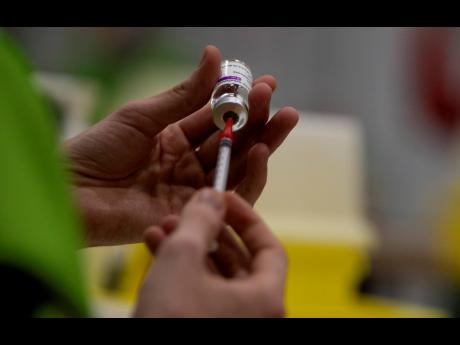Cedric Stephens | Planning for unpredictable risks
The Disaster Risk Management Act, 2015, or DRMA, was signed into law by the governor general on February 19, 2015, without much fanfare. It replaced and repealed the Disaster Preparedness and Emergency Management Act of 1993.
The DRMA is now discussed daily. It makes provisions for the management and reduction of risks associated with disaster and connected matters. The Government is using it as one of its tools to manage the COVID-19 disease.
What is a disaster? The DRMA defines it this way: ‘“The occurrence or threat of occurrence of an event or other calamity, whether caused by an act of God or otherwise, which (a) results or threatens to result in loss or damage to property, damage to the environment or death, ill-health or injury to persons on a scale which requires emergency intervention by the State: and (b) may result from fire, accident, an act of terrorism, storm, hurricane, pollution, disease, earthquake, drought flood, the widespread dislocation of the essential services, or another calamity.”
The first 10 items are events that insurance policies cover.
When the DRMA was being drafted and debated in Parliament, I strongly suspect that our legislators gave little or no thought to the probability of an event like COVID-19. Last week’s article provided persuasive information that this type of event was probable.
Reputational risks were not included in the DRMA. Reputational risk is the potential for negative publicity, public perception, or uncontrollable events to hurt a company’s, or country’s, reputation, thereby affecting its revenue.
Public perception of Jamaica’s brand and reputation is important given its dependence on the tourist industry. Minister of Tourism Edmund Bartlett is acutely aware of this fact. Last week’s saga about the former JetBlue flight attendant who falsely claimed on social media that she had been abducted while on holiday here is an example of how easy it is for one person to damage Jamaica’s reputation as a tourist destination it has spent years and millions of dollars creating. News reports suggest that the Government of Jamaica will be taking steps under the Cybercrimes Act to mitigate this risk.
Risk assessment and risk planning are increasingly playing roles in governance in the public and private sector. The humanitarian disaster that is now taking place in Texas – millions of homes without electricity, heat, and water, during record cold temperatures – is, according to reports, an example of governance failure. The New York Times says the “power failures have cast a spotlight on whether energy companies and regulators are doing enough to prepare for climate change and natural disasters”.
Risk assessment and risk planning are now part of Jamaica’s national agenda. Unfortunately, however, they are being viewed through separate lenses even though COVID-19 has indicated that they should be treated holistically. For example, a few weeks ago, we heard about the Caribbean Tourism Organization’s Risk Management Guide for the tourist industry as if this sector operates in isolation from the other sectors. Then, there is the debate about whether limestone mining should take place in the Dry Harbour Mountain or bauxite mining should take place near or in Cockpit Country. Farmers in other areas, according to one report in The Gleaner, are arguing whether bauxite mining should be permitted because of the threats it presents to agriculture.
Has COVID-19 taught us anything other than social distancing, the wearing of masks, and keeping our hands clean? Happily, or otherwise, there are still some things that we can learn from our former colonial masters. The House of Lords in the UK Parliament has set up a Committee on Risk Assessment and Risk Planning. It has invited “the public to provide their views on how we can ensure that the United Kingdom is as resilient to extreme risks and emergencies as possible”.
The committee said it would be looking at hazard-related risks to the United Kingdom, which have the potential to cause significant human, economic, environmental, and infrastructure damage – including events such as flooding, heatwaves, and global pandemics. It will explore a range of issues including the national risk identification and assessment process; governmental risk ownership; planning for emergencies; emerging and unknown risks; and international cooperation.
“The UK is at risk from a multitude of hazards, some of which could change life as we know it. We need to know what these risks are; we need to prevent what we can, and we need to plan for the arrival of those we cannot prevent,” said Lord Arbuthnot, chair of the committee.
“COVID-19 has been a wake-up call and a reminder that events on a mega-scale can happen with minimal warning. We cannot be complacent and need to do all we can to prevent these threats and enhance our resilience if the worst happens,” he said.
Is this something that the Jamaican Parliament should emulate given the island’s exposure to a multiplicity of risks? When I read the Economic Growth Council’s 5-in-4 report a few years ago, what struck me about it was that the growth targets did not make any explicit assumptions about any of the events listed in DRMA or a COVID-19-type event. I remembered this after I read about the plans of the House of Lords.
- Cedric E. Stephens provides independent information and advice about the management of risks and insurance. For free information or counsel, write to: aegis@flowja.com

